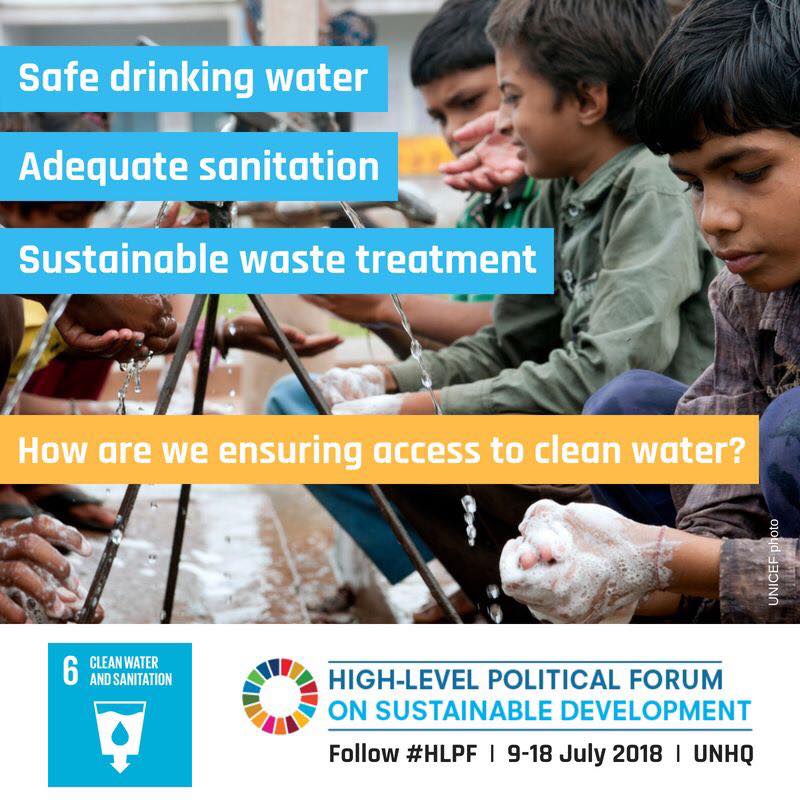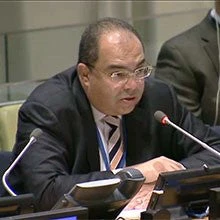This post originally appeared on High-Level Political Forum on Sustainable Development website on July 9, 2018.

Water touches nearly every aspect of development. It flows through and connects the 17 Sustainable Development Goals (SDGs) by driving economic growth, supporting healthy ecosystems, cultivating food and energy production, and ensuring access to sanitation. We cannot achieve the SDGs without our collective action on water.
Yet today water represents a silent emergency and a risk to our goals of building shared economic progress and sustainable development. The challenges include gaps in access to water supply and sanitation driven by growing populations and rapid urbanization, more water-intensive patterns of growth, increasing rainfall variability, and pollution, among others. The forthcoming SDG 6 Synthesis Report on Water and Sanitation captures the current situation rather succinctly: “the world is not on track” to achieve our water goals embedded in SDG6.
Billions of people around the world still lack safe water, sanitation and handwashing facilities. An increase in wastewater in many parts of the world is affecting quality. National governance structures remain weak and fragmented. Rapid urbanization has put enormous stress on agricultural production and water supply. Financing remains insufficient and data gaps in monitoring are abundant.
The World Bank Group is working with our country partners in a number of ways to address these challenges and ensure that water is used wisely to help achieve the SDGs and a water-secure world for all.



Join the Conversation